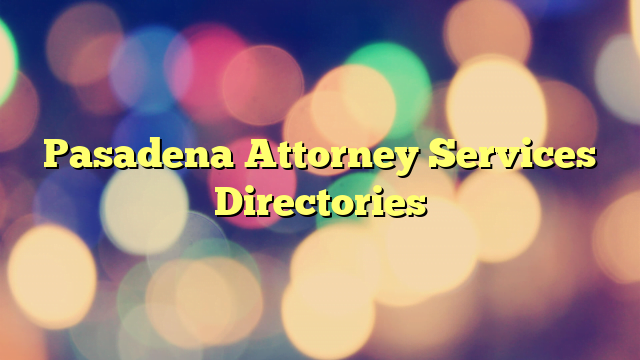Get On The Road to Financial Recovery (Part II)
Get On The Road to Financial Recovery (Part II)
What Others Can Do for You
Credit Counseling. If you are unable to make satisfactory arrangements with your creditors, there are organizations that can help. An organization that you can call is a Consumer Credit Counseling Service (CCCS) agency. These local, non-profit organizations affiliated with the National Foundation for Consumer Credit (NFCC) provide education and counseling to families and individuals.
For consumers who want individual help, CCCS counselors with professional backgrounds in money management and counseling can provide support. To promote high standards, the NFCC has developed a certification program for these counselors. A counselor will work with you to develop a budget to maintain your basic living expenses and outline options for addressing your total financial situation. If creditors are pressing you, a CCCS counselor can also negotiate with these creditors to repay your debts through a financial management plan. Under this plan, creditors often agree to reduce payments, lower or drop interest and finance charges, and waive late fees and over-the-limit fees.
According to the NFCC, about 35% of those counseled are able to help themselves after budget counseling sessions; 30% require a debt repayment program, 7% are referred to legal assistance, and 28% are referred to other resources (e.g., programs for treating compulsive behavior such as alcohol, drug or gambling problems) or decide not to participate at that time. About 65% to 70% of the individuals who start the debt repayment plan complete it successfully.
After starting the debt repayment plan, you will deposit money with CCCS each month to cover these new negotiated payment amounts. Then CCCS will distribute this money to your creditors to repay your debts. With more than 1,100 locations nationwide, CCCS agencies are available to nearly all consumers. Supported mainly by contributions from community organizations, financial institutions, and merchants, CCCS provides services free or at a low cost to individuals seeking help.
Personal Bankruptcy. Bankruptcy is a legal procedure which can give people who cannot pay their bills a fresh start. A decision to file for bankruptcy is a serious step. You should make it only if it is the best way to deal with financial problems.
There are two types of bankruptcy available to most individuals. Chapter 13 or “reorganization” allows debtors to keep property which they might otherwise lose, such as a mortgaged house or car. Reorganizations may allow debtors to pay off or cure a default over a period of three to five years, rather than surrender property.
Chapter 7 or “straight bankruptcy” involves liquidation of all assets that are not exempt in your state. The exempt property may include items such as work-related tools and basic household furnishings, among others. Some of your property may be sold by a court-appointed official or turned over to your creditors. You can file for Chapter 7 only once every six years.
Both types of bankruptcy may get rid of unsecured debts (those where creditors have no rights to specific property), and stop foreclosures, repossessions, garnishments, utility shutoffs, and debt collection activities. Both types also provide exemptions that permit most individual debtors to keep most of their assets, though these “exemption” amounts vary greatly from state to state.
Bankruptcy cannot clean up a bad credit record and will be part of this record for up to ten years. It can, for example, make it more difficult to get a mortgage to buy a house. It usually does not wipe out child support, alimony, fines, taxes, and some student loan obligations. Also, unless under Chapter 13 you have an acceptable plan to catch up on your debt, bankruptcy usually does not permit you to keep property when the creditor has an unpaid mortgage or lien on it.
Bankruptcy cases must be filed in federal court. The filing fee is 0, which sometimes may be paid in installments. This fee does not include the fees of your bankruptcy lawyer.
Choosing a bankruptcy lawyer may be difficult. Some of the least reputable lawyers make easy money by handling hundreds of bankruptcy cases without adequately considering individual needs. Recommendations from those you know and trust, and from employee assistance programs, are most useful.
Some publicly funded legal services programs handle bankruptcy cases without charging attorney fees. Or these programs may provide referrals to private bankruptcy lawyers. Keep in mind that the fees of these attorneys may vary widely.
Possible Pitfalls
You may encounter credit counselors who aren’t helpful. For-profit or non-credentialed counseling organizations often make promises that they cannot or do not keep. Be especially careful when asked for a large sum of money in advance. To check the organization’s reputation, contact your state Attorney General, consumer protection agency, or Better Business Bureau.
“Credit repair” clinics and “credit doctors” have been frequently criticized for promising that they can remove negative information from your credit report. Accurate information cannot be changed. If information is old or inaccurate, you can contact a credit bureau yourself and ask that it be removed.
Risky refinancing options. When already in financial trouble, second mortgages greatly increase the risk that you may lose your home. Be wary of any loan consolidations or other refinancing that actually increase interest owed or require payments of points or large fees.
A Final Word: Don’t lose hope, even if you despair of ever recovering financially. You can regain financial health if you act. Pursuing the options presented in this article can put you on the road to financial recovery.


